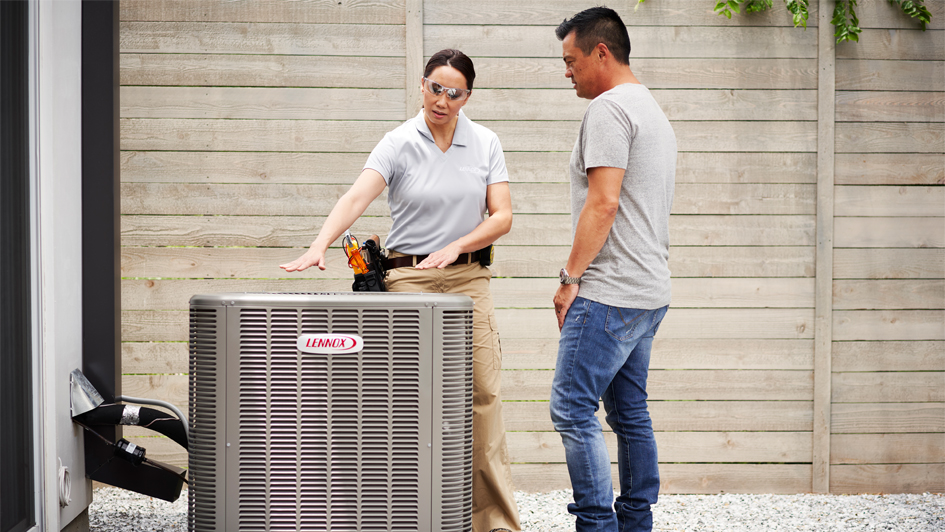
Choosing the appropriate HVAC system size for your home is vital. It affects your home enjoyment and your power expenses. In this HVAC sizing guide, the specialists at Morgner Inc. Air Conditioning & Heating will explain how to choose the correct size of heating and cooling system for your home, what features they take into account and why selecting the most suitable size HVAC is so important to your satisfaction.
How Does HVAC System Size Affect Your Home Comfort and Efficiency
Proper HVAC size is different for every home. Your HVAC system needs sufficient heating and cooling capacity to make your entire home cozy. It shouldn't have to work extremely hard to keep up in extremely scorching or frigid weather. However, an HVAC system that's too large is inefficient, wastes money and can cause problems that make your home less enjoyable.
Key Features Professionals Consider for HVAC Sizing in Saint Louis, MO
To select the right HVAC system size for a home, the HVAC installation specialists at Morgner Inc. Air Conditioning & Heating perform a Manual J load calculation to determine how many British Thermal Units (BTUs) are necessary to heat and cool and the home. A Manual J calculation evaluates several elements, such as:
- Size of the home: The total area of the home is arguably the most significant factor in picking the size of your HVAC system. How much space will your new HVAC system need to keep comfortable?
- Amount of insulation: A well- insulated home retains the indoor temperature more effectively, which can affect how much heating and cooling power you require.
- Climate: The local climate in Saint Louis, MO, has a major role in determining the appropriate size HVAC. Homes in hotter climates might need a system with an increased cooling capacity, while cooler regions may require less.
- Window size: Windows can be a major source of energy loss. The number, size, type of glass used, and whether they’re single paned or double paned can considerably impact heating and cooling requirements.
- Sun and shade: A home that gets a lot of sunlight will naturally be warmer than one that doesn't, which affects central air sizing. Orientation in relation to prevailing winds and number of nearby shade trees also affect the proper HVAC size.
Most Common DIY HVAC Size Mistakes
A common mistake homeowners make when determining the size of their HVAC system is to rely solely on square footage. While the square footage of your home has a major impact on what size HVAC you need, other considerations also influence how much heating and cooling capacity is required to keep your home comfortable.
Another typical mistake is not employing a professional. It's essential to have a qualified HVAC technician conduct a Manual J calculation, which takes all the essential elements into consideration to determine the appropriate HVAC size.
Why Is Your Home HVAC System Size Important?
An improperly sized system can cause comfort problems and cost you money. Here's a closer look at the pitfalls of a incorrectly sized HVAC:
Issues with undersized HVAC systems:
- Less longevity and breakdowns: HVAC systems that are too small often operate continuously to attempt to regulate the temperature of a home, leading to increased wear and tear. This can lead to breakdowns and even require premature HVAC replacement.
- An uncomfortable home: Small HVAC systems are too weak to heat and cool your whole home, which can cause hot, stuffy rooms or areas of your home that are uncomfortably cold.
- Higher energy bills: An underpowered HVAC system that works constantly trying to keep up uses more energy, increasing your monthly power bills and wasting your hard-earned money. A properly sized and energy-efficient HVAC system consumes less energy and helps to lower your monthly bills.
Oversized HVAC system problems
- Unnecessary expenses: Larger HVAC systems are usually more costly, so purchasing more heating and cooling capacity than your home needs is an unnecessary expense.
- Shorter system life and breakdowns: HVAC systems that are too big often cycle on and off, referred to as short cycling. This can lead to wear and tear on your equipment, reducing its service life or requiring HVAC repair.
- Increased humidity: An HVAC system should regulate indoor humidity, but an oversized HVAC system may lack adequate runtime to accomplish that task. This can result in indoor air quality issues, such as mold growth.
Get Help Replacing or Sizing Your Home HVAC System from Morgner Inc. Air Conditioning & Heating
Now that you understand some of the factors that affect what HVAC system size is right for you, it's time to choose a new heating and cooling system. Morgner Inc. Air Conditioning & Heating can help.
We’ll evaluate your home and provide you with a free, no-obligation estimate for HVAC installation. We’ll assess your home to identify the ideal HVAC system size for you, so you can experience comfort every day of the year.
Call 314-262-4541 today to schedule your free estimate for HVAC installation in Saint Louis, MO.
